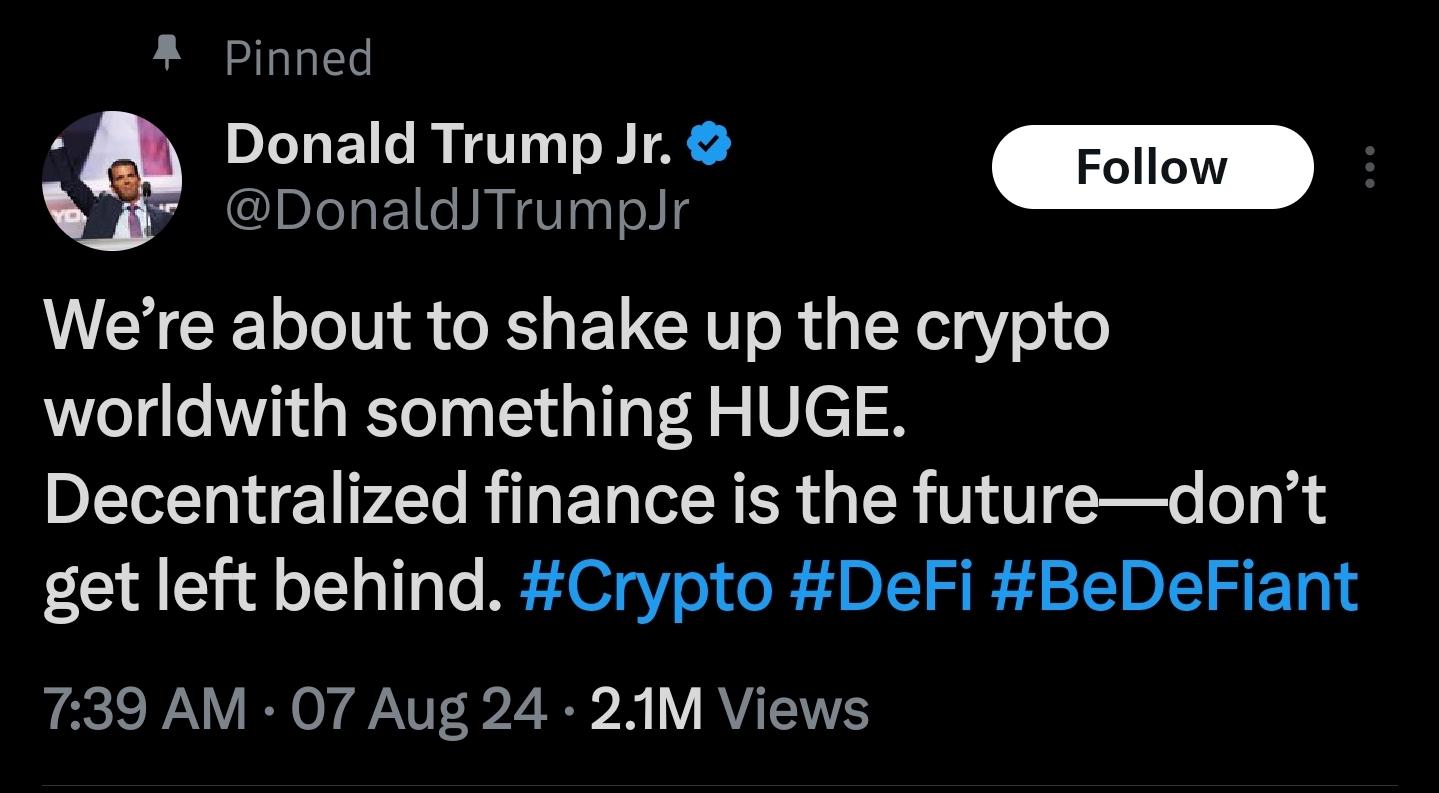
Trump Jr. — "We're about to shake up the crypto world with something Huge. Decentralized finance is the future — don't get left behind. #Crypto #DeFi #BeDeFiant"
(media.greatawakening.win)
LET'S GOOoOoooo!!!

Anyone know exactly what he's talking about here? I'm not very savvy with all the crypto stuff unfortunately.
Decentralized Finance uses smart-contracts to enable individuals to put up capitol into these contracts on decentralized exchanges to allow for liquidity and get a % based yield on a currency pair (ex. ETH - USD(insert stable coin ticker here) or ETH - DOGE(insert token)).
So you put up 0.1 ETH and the USD equivalent and can earn a % whenever that pair is traded.
Or:
You can put up 0.1 ETH and USD to earn tokens (often the DEXs own token or other listed tokens) as rewards based on the staked %.
The common smart-contract chains are: ETH (the most popular - can get insanely expensive to execute contracts), BNB (Binance Exchange's network - would recommend to avoid it and any other centralized entity), ADA, SOL (youngblood - the hip trendy network), AVAX, MATIC (falling out of favor) and then there are a whole bunch of other networks that are their own thing or networks specifically built so that they can be bridged back to ETH as a form of second layer (L2).
Basically it's this:
You take crypto (that you control - if you lose the private key/seed, it's like throwing that money into Mt. Mordor, there's no one to call to get it back, it's gone) and you put it into a decentralized exchange's (DEX) smart-contract (that you don't control per-se, but can typically withdraw and harvest the rewards whenever you choose unless you specifically choose a contract that has a time-lock, so you have control in that aspect) platform to earn a % yield on the staked liquidity.
The onus is on the individual to safeguard their crypto so you really have to know what your doing in order to prevent lost funds.
I would recommend learning with a crypto that has cheap transaction fees (tx fees) (Subjective, but stay away from BTC and ETH because their fees can get expensive real quick if you don't look up the tx fees ahead of time.) and figure out how to send and receive coins to and from your crypto wallet before even dipping your toes into DeFi and other smart-contract based crypto applications.